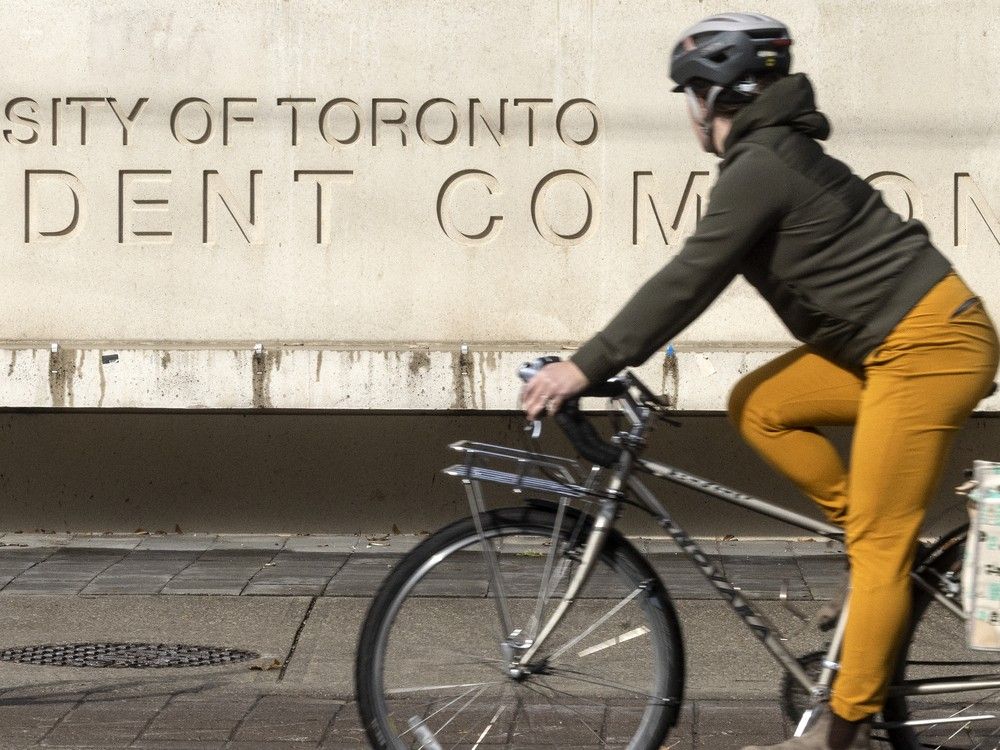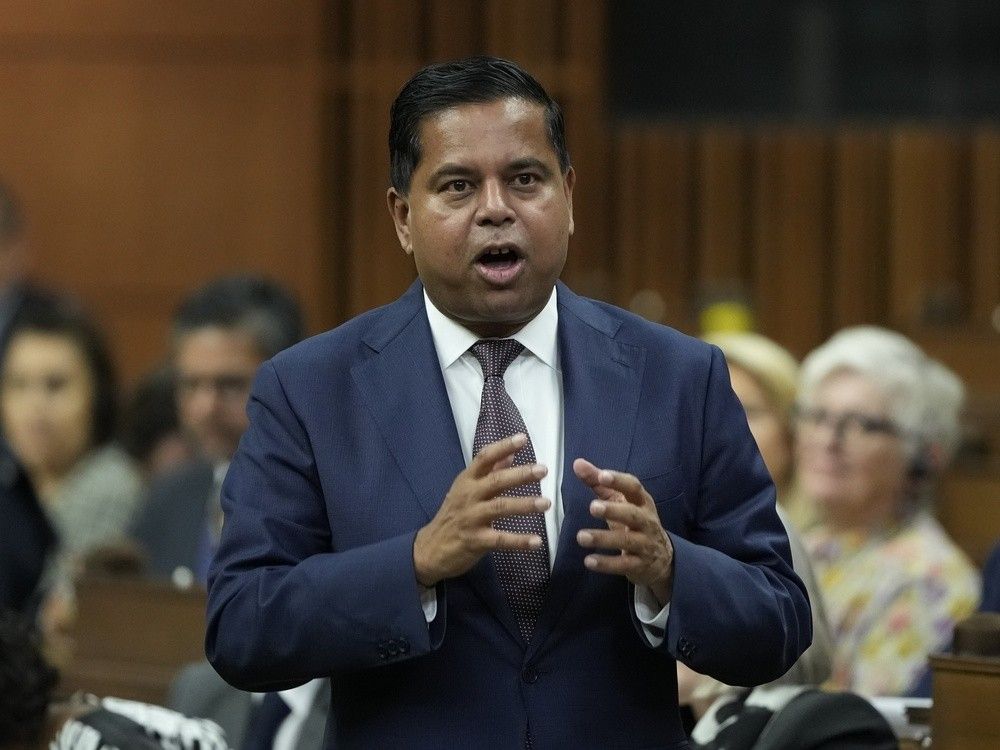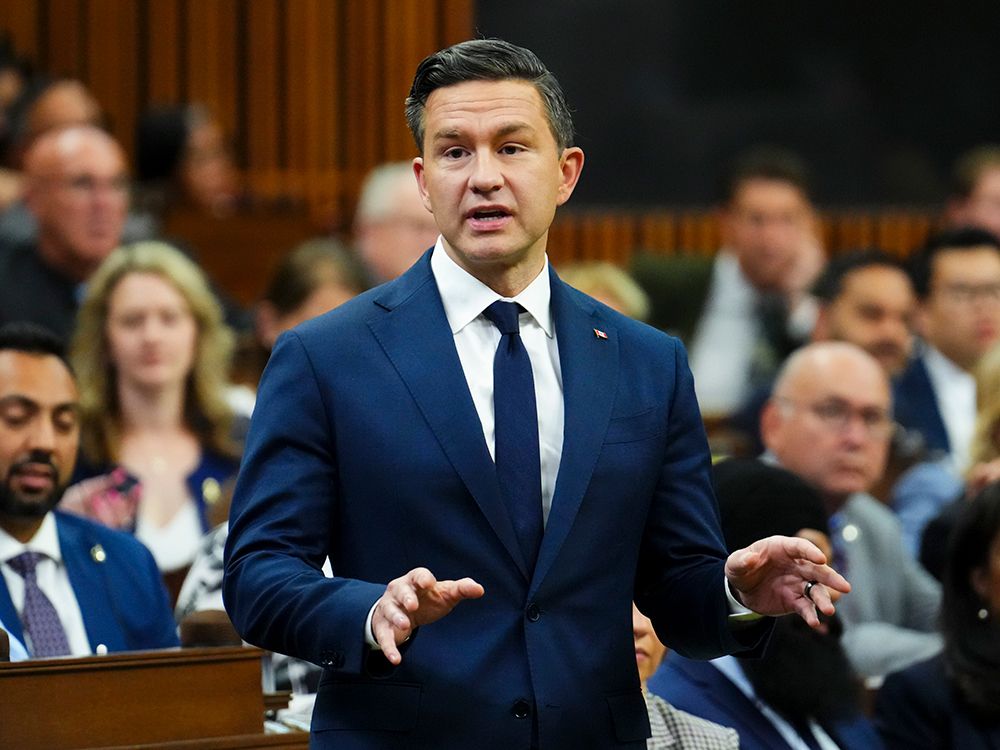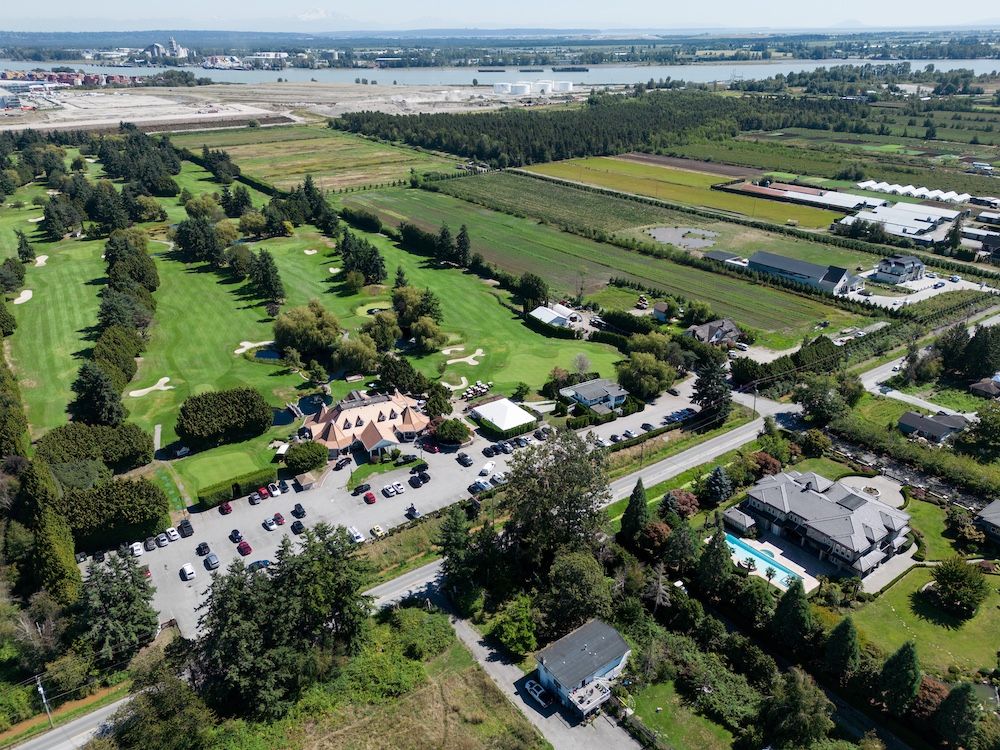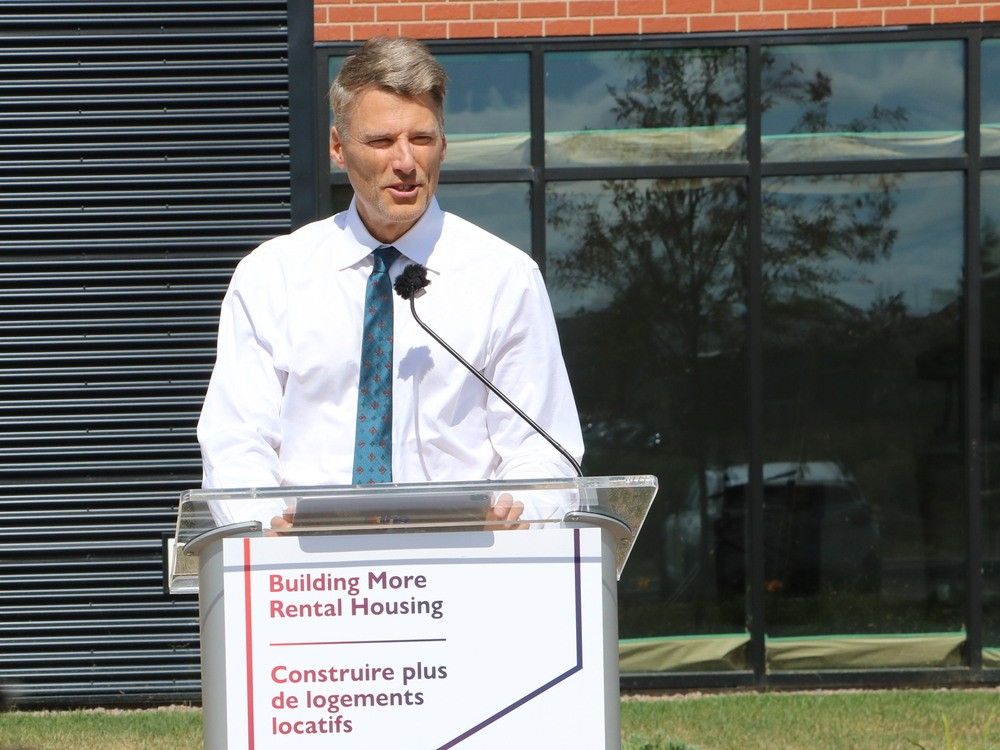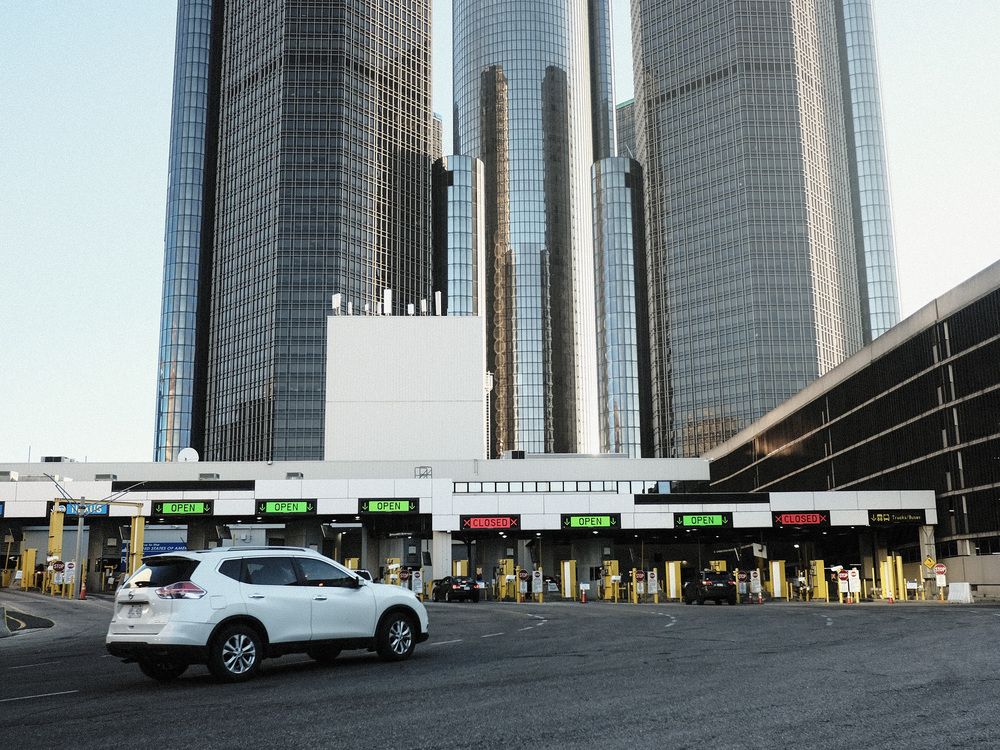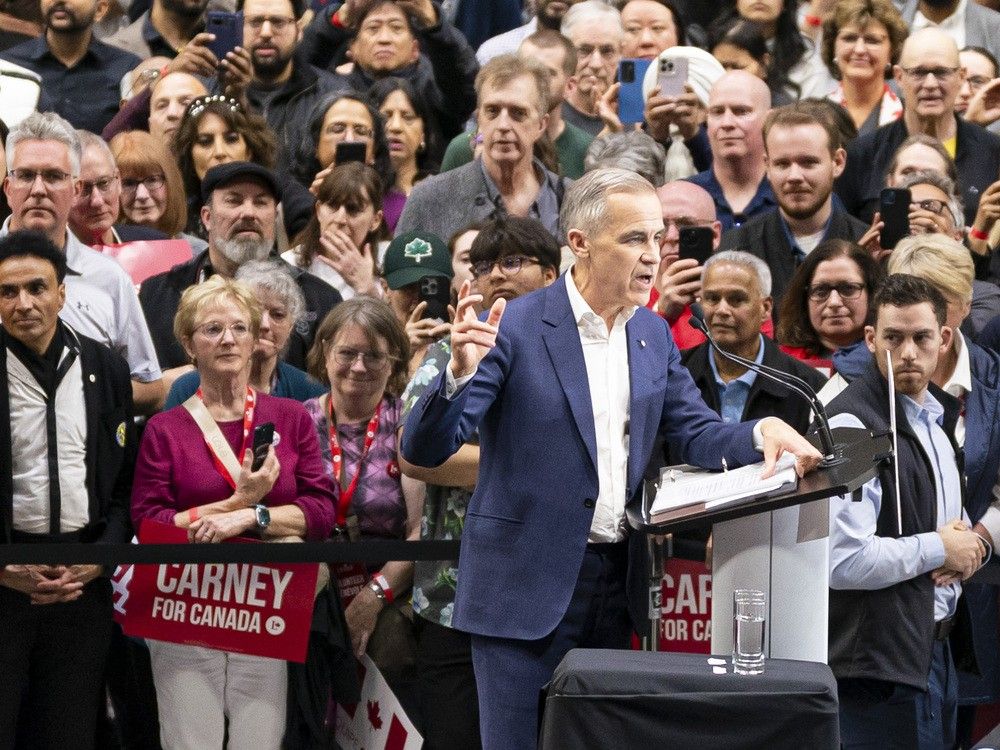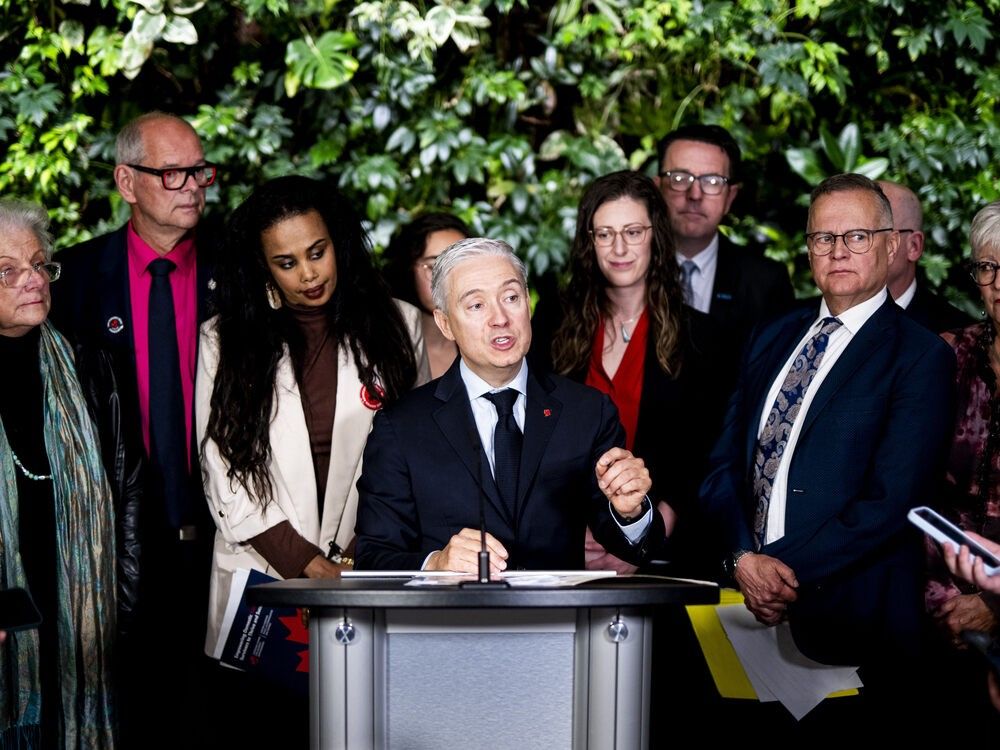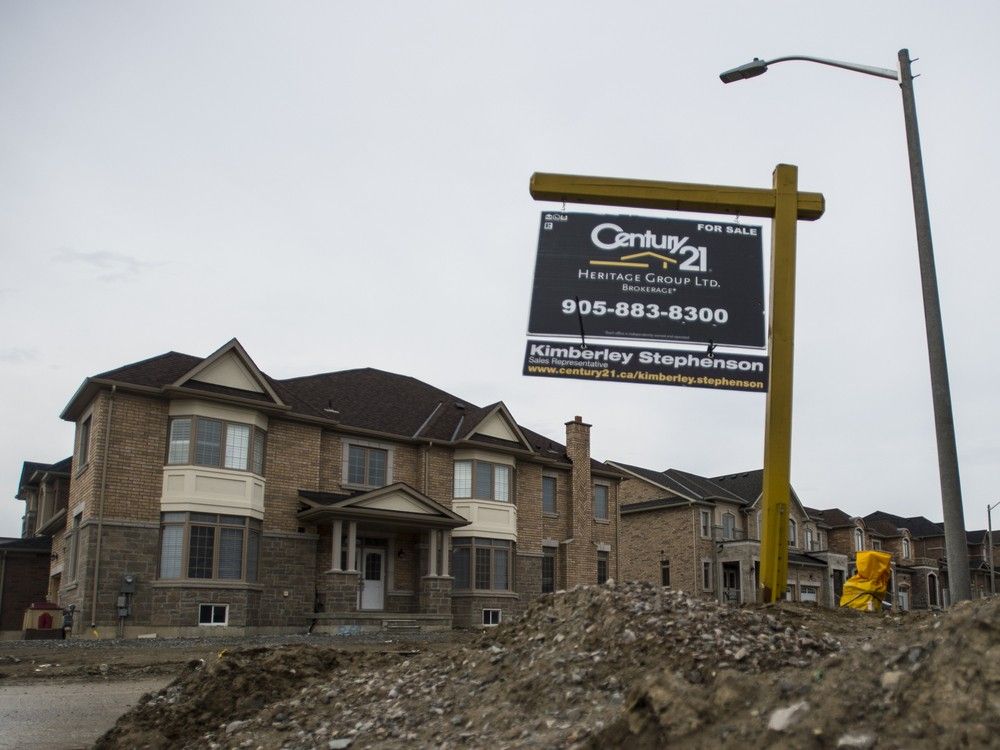
OTTAWA — For every house being built in Canada’s largest metropolitan area, a new report says, there are 12 that have all of the necessary approvals but no shovels in the ground, which amounts to a backlog of about 1.2-million homes in that area alone.
The report, to be released Tuesday by cross-sectoral group CivicAction, says that backlog in the Greater Toronto and Hamilton Area (GHTA) and across the country is a major factor in Canada’s housing crisis.
The gulf between the planned homes and those actually getting built, CivicAction says, is a result of a wide variety of structural bottlenecks, including: municipal planning departments are designed for building levels of the past, not what is needed today; financing models favour high-priced developments, not the homes that middle-class Canadians can afford; and skills shortages in the construction industry.
Leslie Woo, CivicAction’s chief executive officer, said the housing crisis in the 26 municipalities that make up the Toronto-Hamilton area and other cities across the country won’t show much of a reprieve until these structural problems are resolved. The array of solutions will need to include new financial models that target affordable homes, mobilizing pension capital, and greater co-ordination and commitment among governments, developers, lenders and non-profits, she said.
“There is a solution but we’re just not getting our act together,” said Woo. “We’re just nibbling at the edges.”
Canada’s housing crisis is rooted in an unusual blend of forces that seems able to overwhelm a market where hundreds of thousands of potential buyers want to spend big bucks on something with countless social and economic benefits. The results of the disconnect between supply and demand in this case include rising home prices, foregone jobs and government revenue and homelessness. The average purchase price of a new home in Canada is now $1.07 million.
Many economists and analysts have portrayed Canada’s housing crisis as largely a function of a lack of supply, arguing that a greater stock of homes for both buyers and renters would mean more homes while also putting downward pressure on prices. They
trace the lack of supply to rising taxes and other input costs
, zoning chokeholds, and a tangled web of multi-jurisdictional bureaucracy.
While Woo emphasized the need for affordable housing, there’s little dispute that Canada needs to approximately double housing output to about 500,000 units a year by the mid-2030s.
But the Canada Mortgage and Housing Corporation (CMHC), a Crown corporation that acts as the country’s national housing agency, says housing output hasn’t shown much progress so far, despite the attention that the issue has received in recent years. CMHC recently forecast that the total number of housing starts this year will be about 237,800, down from 245,367 in 2024. The agency also forecasts a drop to about 227,734 next year and 220,016 in 2027.
The challenge has many faces, including access to land in the right places, lack of skilled trades, and, of course, rising costs.
The biggest cost in the price of a new home is taxation, with all three levels of government taking a healthy cut in the price of a new home. A recent study found that taxes and fees now comprise an average of about 35.6 per cent of the price of a new home — 16 per cent (or five percentage points) higher than at the start of the decade. About 70 per cent of those charges are for development charges for sewer, water and electricity, land-transfer taxes, and HST. The other 30 per cent is for the indirect income and corporate taxes paid throughout the supply chain, but ultimately passed on to buyers.
But the other major costs that go into a new home have also been on the rise. Those include the value of land and materials (21.2 per cent), the cost of the workers who provide home essentials such as flooring and cabinets (16.9 per cent), construction workers (12.9 per cent), developers’ margins (9.1 per cent) and supplier margins (4.2 per cent).
All three levels of government say they recognize the need for more homes and want to fix the problem. But housing industry executives, economists and groups such as CivicAction agree that there’s a long road ahead.
The federal government, which set the 500,000 target and is responsible for national housing strategies, signing cheques to provincial non-profits and indigenous housing, unveiled last month Build Canada Homes. The new $13 billion program is intended to help more homes get built more quickly, especially more affordable homes.
Prime Minister Mark Carney said the program will reduce the upfront building costs by providing flexible financial incentives to attract private investment and trigger large projects. The new organization would also use federal land in six cities for the construction of 4,000 factory-built homes. Ottawa has also eliminated the GST for first-time homebuyers who purchase homes valued at less than $1 million and tried to shave demand for housing by cutting immigration and foreign student numbers.
Some provinces and territories, the primary provider of housing delivery and public housing, are also taking steps, including making better use of underused land and cutting red tape.
Municipalities are seen as the biggest players in housing. They control zoning, land use, urban planning, and must approve housing developments. They’re also responsible for water, sewer and other services that form a costly and time-consuming part of the process for new builds.
Some municipalities have taken recent steps to spur more housing. More than a dozen municipalities in the Toronto area, for example, have temporarily trimmed or eliminated those development charges.
Demand for housing has also been on the rise for many decades, putting further pressure on prices. Population growth, fuelled largely by immigration, internal migration from rural to urban areas, and the reduction in the number of people who live in the average Canadian home are major drivers.
Beyond the social importance of housing, the lack of supply also comes with a huge economic cost.
Economists point out that home construction also creates economic activity and jobs through construction and the various purchases of furniture, appliances and other items that new homeowners typically make.
The new report by CivicAction, which was funded by TD Bank Group, also points to another another cost, saying that 68 per cent of GTHA businesses report difficulty attracting talent because of the area’s housing costs.
National Post
Our website is the place for the latest breaking news, exclusive scoops, longreads and provocative commentary. Please bookmark nationalpost.com and sign up for our daily newsletter, Posted, here.




